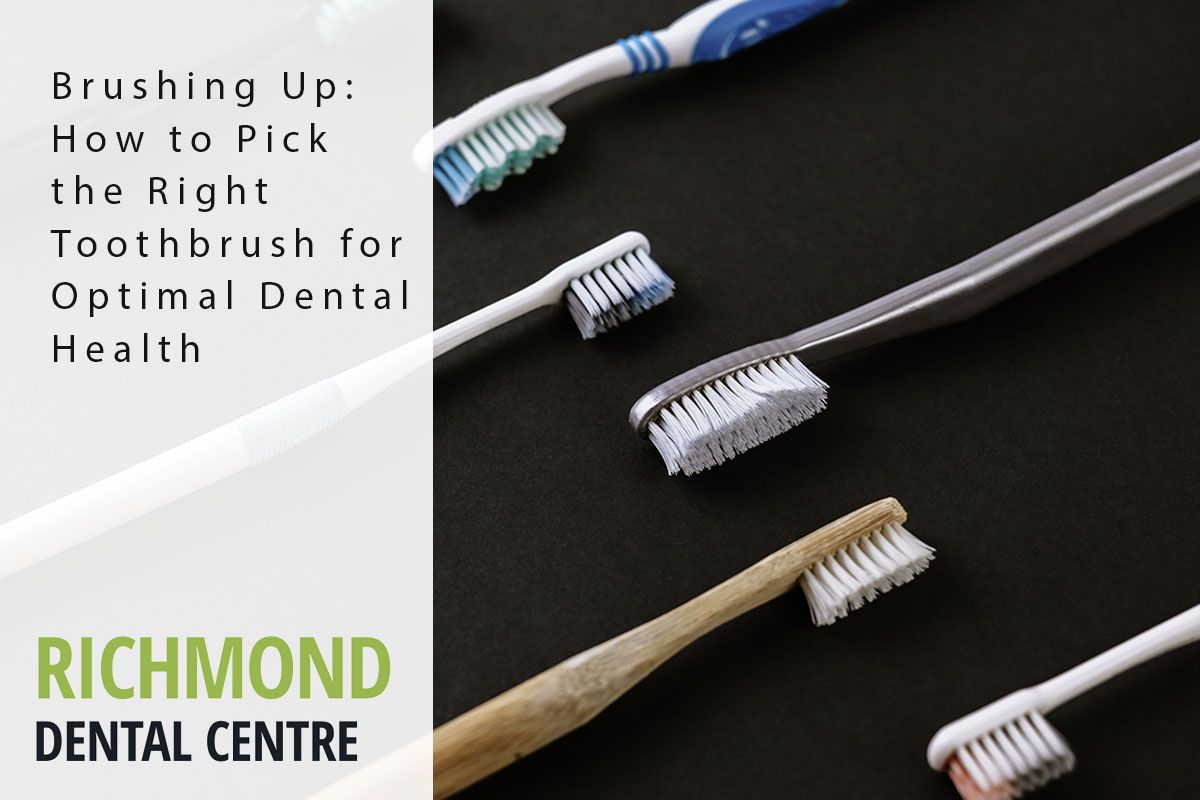Struggling in the toothbrush aisle, overwhelmed by choices? We’ve got your back. Discover the essentials of selecting the perfect toothbrush for your dental needs, whether it’s for sensitivity, gum care, or whitening. Say goodbye to the shopping confusion and impress your dentist at your next check-up!
Importance of choosing the right toothbrush
Oral hygiene is vital for maintaining healthy teeth, with your toothbrush being a crucial tool in your arsenal. Choosing the appropriate toothbrush can help prevent dental problems like cavities, gum disease, and tooth sensitivity while enhancing your breath and smile’s freshness. When it comes to selecting a toothbrush, many individuals tend to grab the first or cheapest one they see on store shelves. However, this approach might not be optimal for your dental health. The right toothbrush should be chosen based on factors like bristle type, brush head size, and recommendations from dental professionals.
Factors to consider when choosing a toothbrush
When selecting a toothbrush, several essential factors should be considered to ensure it aligns with your specific dental needs and preferences:
- Bristle Type and Texture: Toothbrushes come with various bristle options, including soft, medium, and hard bristles. Dentists typically recommend soft bristles as they are gentle on gums and teeth, reducing the risk of damage or irritation. Soft bristles are more flexible, allowing them to reach into crevices and gaps effectively. Avoid hard or medium bristles, as they can be abrasive and potentially lead to gum recession or enamel erosion over time.
- Brush Head Size and Shape: The size and shape of the brush head are critical considerations. The brush head should comfortably fit inside your mouth and have the capacity to reach all areas of your teeth. If the brush head is too large, it may be challenging to navigate and access the back molars or tight spaces between teeth. Conversely, if the brush head is too small, it may require more time to clean all your teeth thoroughly. Select a brush head size and shape that allows you to comfortably and effectively clean your teeth.
- Manual vs. Electric: Decide between a manual or electric toothbrush based on your personal preferences and dental needs. Manual toothbrushes are affordable, accessible, and easy to travel with since they don’t require batteries or charging. Electric toothbrushes, whether rechargeable or battery-operated, can be more effective in removing plaque and promoting oral health. They often feature rotating or vibrating brush heads that enhance brushing efficiency. Electric toothbrushes are recommended for those with limited dexterity or individuals looking to improve their brushing technique.
- Cost and Budget: Consider your budget when selecting a toothbrush. Manual toothbrushes are generally more budget-friendly than electric ones. While electric toothbrushes can be more expensive initially, they may offer long-term benefits for your oral health. Weigh the cost against the potential advantages to determine which option aligns with your budget.
- Dental Recommendations: It’s valuable to consult with your dentist or dental hygienist for their recommendations. They can provide personalized guidance based on your dental health, any specific conditions or concerns, and your brushing technique. Your dental professional’s input can be invaluable in selecting the most suitable toothbrush for your needs.
Proper toothbrush care and maintenance
After selecting the perfect toothbrush, it’s vital to maintain it properly to preserve its effectiveness and prevent bacterial growth. Here are some key tips for toothbrush care and maintenance:
- Regular Replacement: Toothbrushes naturally wear out and may become less effective over time. It is recommended to replace your toothbrush every three to four months or sooner if the bristles begin to fray. An older toothbrush may not efficiently clean your teeth and could harbor bacteria.
- Thorough Rinsing: After each use, make sure to thoroughly rinse your toothbrush with tap water to remove any toothpaste residue or debris. Ensure you eliminate excess water and store the toothbrush in an upright position to facilitate proper air drying.
- Avoid Sharing: Sharing toothbrushes can lead to the transfer of bacteria and potential infections. It’s essential for each family member to have their own toothbrush to maintain good oral hygiene.
- Proper Storage: Store your toothbrush upright in a well-ventilated area without a cover. Avoid enclosing it in containers or covers, as this can foster bacterial growth.
- Clean the Holder: If you utilize a toothbrush holder, ensure regular cleaning to prevent bacteria buildup. Clean it with warm, soapy water and let it air dry thoroughly before placing your toothbrush inside.
Conclusion
Selecting the ideal toothbrush is a crucial aspect of maintaining optimal dental health. By taking into account factors like bristle type and brush head size, you can discover a toothbrush tailored to your specific needs, fostering excellent oral hygiene. Don’t forget to maintain your toothbrush correctly by thorough rinsing, upright storage, and regular replacement. Armed with the right toothbrush and proper brushing technique, you can attain a lasting, healthy smile. Bid farewell to uncertainty and welcome a confident, healthy smile! Don’t forget to book at appointment today with the Richmond Dental Centre. Call (604) 273-3368 to schedule a dental appointment.







